Japan had a red-letter day on Thursday at the Australian Open as thirteen were lucky enough to make it to Friday in Sydney.
By Aaron Wong, live from Sydney. Photos: Andrew Greenway, Courtesy of Badminton Australia (live)
Japan in, Hong Kong out
All thirteen Japanese entries advanced through to the quarter-finals while the remaining three Hong Kong ones were snuffed out of the competition.
Defending champion Sho Sasaki (pictured) of Japan was tested for the first time this week when Hong Kong’s Hu Yun grabbed the first game. Sho’s solid, bassy smash, which had been employed relatively sparingly against earlier opponents, assumed a primary function in Thursday’s second game where he thundered down nine winners to Hu’s two.
Sho’s winning streak and, crucially, confidence carried into the decider such that even a last resort anything-goes cross court high lift sitting duck after Hu managed to spin him around landed on the deep forehand sideline, leaving the opponent capable of only a you-have-got-to-be-kidding-me shrug. Sho triumphed 15-21, 21-11, 21-19.
World Junior + World Champion vs. 3-time World Junior Champion
Wang Lin gave the crowd reason to be tense and worried again as the first ever meeting between her and Ratchanok Intanon (pictured) began with a variety of errors and she lost the first game looking like she had no clues to solving the Thai riddle.
In the first game, Ratchanok had been trying out stuff, and was occasionally rewarded but Wang Lin struggled with being given no rhythm by her opponent and committed continual unforced errors at the net, misjudgements on shuttles falling close to the lines on her court, and was being deceived by some of Ratchanok’s unobvious shot selections. Adding to that, the popular player kept looking to her coach for reassurance, which made the crowd begin to worry that the writing was on the wall.
Amazingly, Wang changed sides a woman reborn and was suddenly completely at ease with Ratchanok nonchalant style of play. She forged to a 11-4 lead through executing a series of outright smash winners and progressed with the Thai teenager never adjusting to the Chinese power ploy nor looking interested in applying more determination. It was eventually rather one-sided 17-21, 21-9, 21-8 once Wang got the hang of things as the scoreline reflects.
“This was the first time I played her. I had to discover and work out what she was like,” Wang Lin later commented about the strange opening game.
Women’s singles contenders make yourself known
Wang’s compatriot Han Li was impressive as she gave Yip Pui Yin of Hong Kong few chances to smash more than once per rally, if at all, and without her main weapon, Yip could only clear inaccurately and fall prey to Han’s fast cross-court drop shots executed from the backhand corner.
Meanwhile, Korean third seed Sung Ji Hyun also advanced and the two are one win each away from setting up a repeat of their Korea Grand Prix Gold final.
“I came to Australia with the aim of winning this title, and there is no alternative,” Sung Ji Hyun said quietly after finishing her match. Her coach Kim Ji Hyun gushed proudly, “She’s grown taller and she is more powerful now.”
Androgynous and becoming indistinguishable
“Men’s singles like watching women’s singles now. Rally and rally until tired,” Singaporean players Derek Wong and Ashton Chen were discussing in distinctively syncopated Singlish while watching Korea’s Shon Wan Ho and Hong Ji Hoon battle long and hard against Ajay Jayaram and Alamsyah Yunus respectively.
It is true that the singles styles are converging, what with more women’s singles players serving short with the backhand like Cheng Shao Chieh, jump smashing like Yip, and looking to take control of the net area first like Ratchanok.
Malaysia’s Chan Kwong Beng (pictured) playing Vietnam’s Nguyen Tien Minh was the highlight of the afternoon. Chan, who sports a classic schoolboy haircut, cared not that his opponent is world renowned for getting almost every shuttle back and managed to successfully put into play his own game plan.
The older more experienced Nguyen acclimatised, getting his racquet on more of Chan’s shots, and eventually managed to tire the younger man in a match lasting 75 minutes. Chan was the first to bow over and hold himself up with his racquet in the deciding game and Nguyen knew then that a few more long rallies would result in unforced errors at the net in his favour, thus closing it out 18-21, 21-18, 21-12.
Cerebral mixed doubles
Robert Mateusiak / Nadiezda Zieba (pictured) of Poland demonstrated why they were once world number 1 by making the competent Singapore pairing of Danny Bawa Chrisnanta / Vanessa Neo look like amateurs in the first game.
Repeatedly, Mateusiak served short and returned a sitting duck that Zieba finished off. The mixed doubles rallies lasted longer in the second game and the score was closer but the Poles smartly managed to baffle the Singaporeans and separate them into a side-by-side formation before punishing the one who was standing too deep. That one was over 21-9, 21-15, in 29 minutes.
The Polish pair must surely be counted as outside favourites for this year’s title. “My partner, she’s been injured for quite a while and we’re back now and winning a match like this feels so good. Not much time left but we are trying our best to qualify for the Olympics,” Mateusiak overflowed with elation afterwards.
In fact, the Poles are currently holding onto the last London spot in mixed doubles, with none other than Chrisnanta and Neo as their closest chasers, a mere 400 points behind. Their position is precarious, though, with the top Oceanian and African pairs lingering just outside the threshold to claim their continental qualification spot.
Click here for complete results
![AUSTRALIAN OPEN 2012 R16 – The sun rises in the Southern Hemisphere Japan had a red-letter day on Thursday at the Australian Open as thirteen were lucky enough to make it to Friday in Sydney. By Aaron Wong, live from Sydney. Photos: […]](http://www.badzine.net/wp-content/uploads/Newsflash-thumbnail.png)

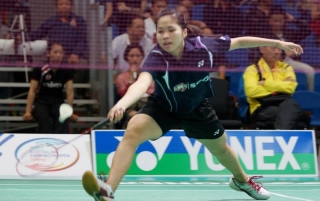
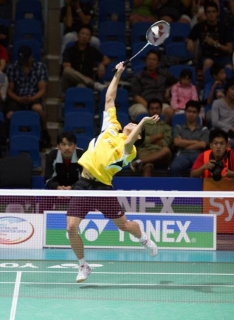
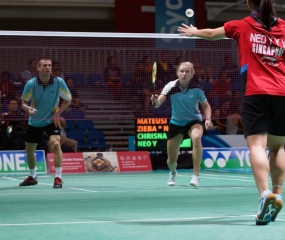

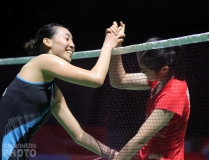
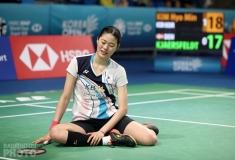

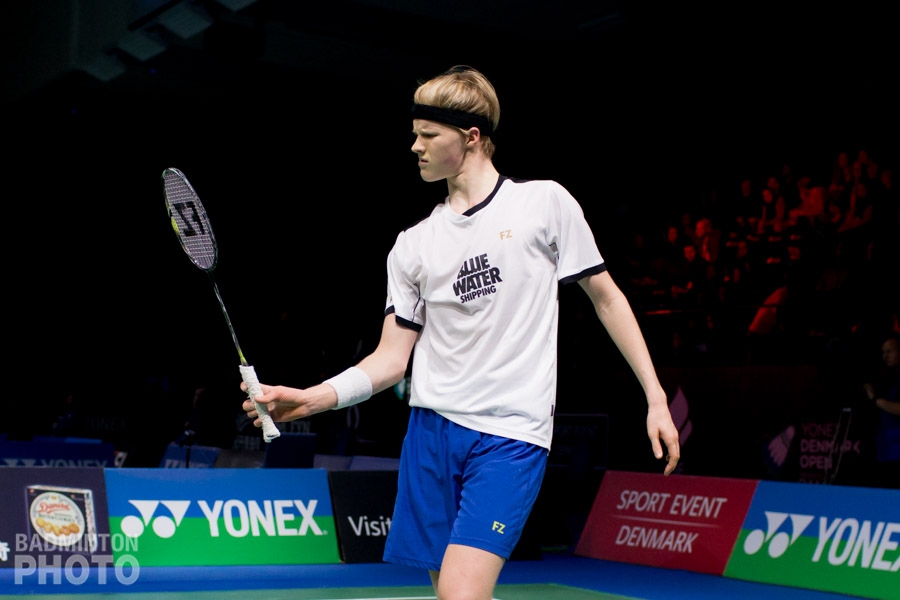
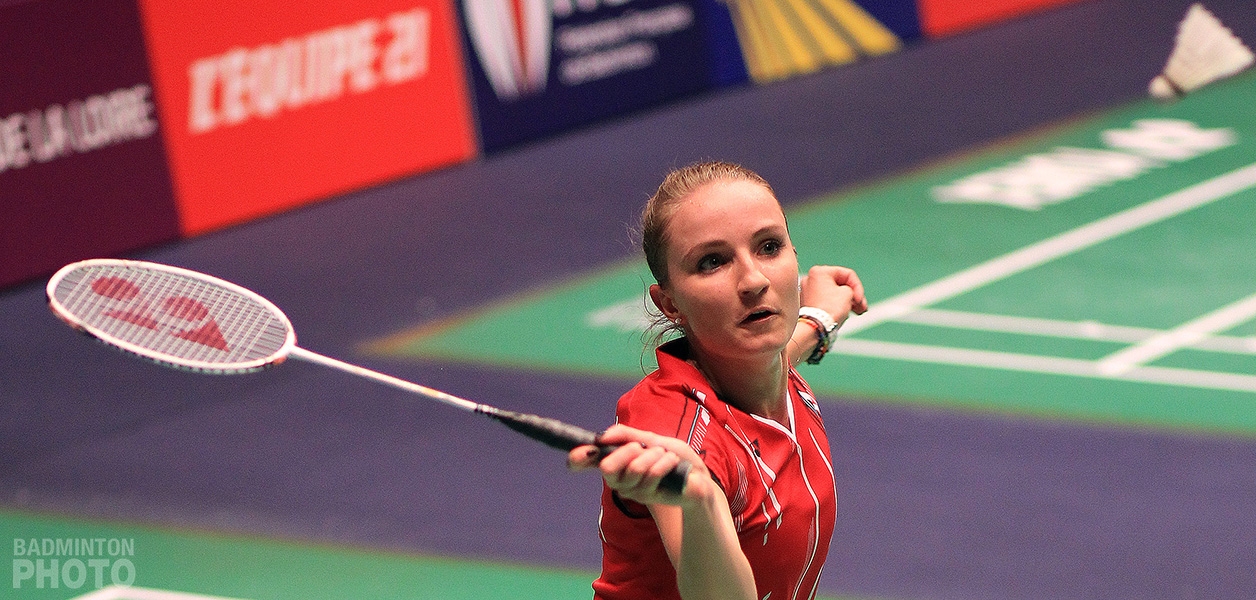
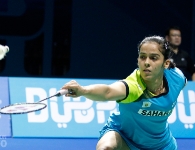
Leave a Reply